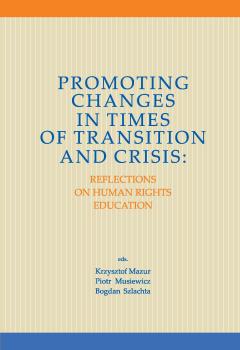Philosophy-based HRE, and Some Consequences for Culturally Diverse Societies .......... 95
Streszczenie
Human rights are considered a part of international law in general, and are usually dealt with as solely legal norms. However, these norms and principles have moral aspects as well. They are not derived from states’ or politicians’ aspirations. They are derived from human dignity which is inherent to all human beings. So, human rights education (HRE) must take this aspect into account.Bearing this aspect of human rights and HRE in mind, this paper aims at evaluating some consequences of this approach for culturally diverse societies. The main problems with culturally diverse societies in the context of human rights crystallise around group rights (or group-differentiated rights) and minority rights issues. In international human rights instruments, the term minority refers to national, ethnic, linguistic and religious mi-norities, and it is accepted that individuals belonging to such minorities have some differ-entiated rights – namely minority rights – by being a member of that minority group. Since there is no consensus on the concept of minority, scholars usually deal with the definition of it, and indicate problems stemming from its vagueness. However, there is another im-portant and mostly neglected problem relating to this debate: the vagueness of the concept of culture. This vagueness causes some problems relating to cultural rights in general, and cultural rights of minorities and group rights issues in particular. In order to clarify those different right categories, their distinguishing characteristics and their different implications, we need clearly justified human rights norms. And we can find this justification in philosophy.





